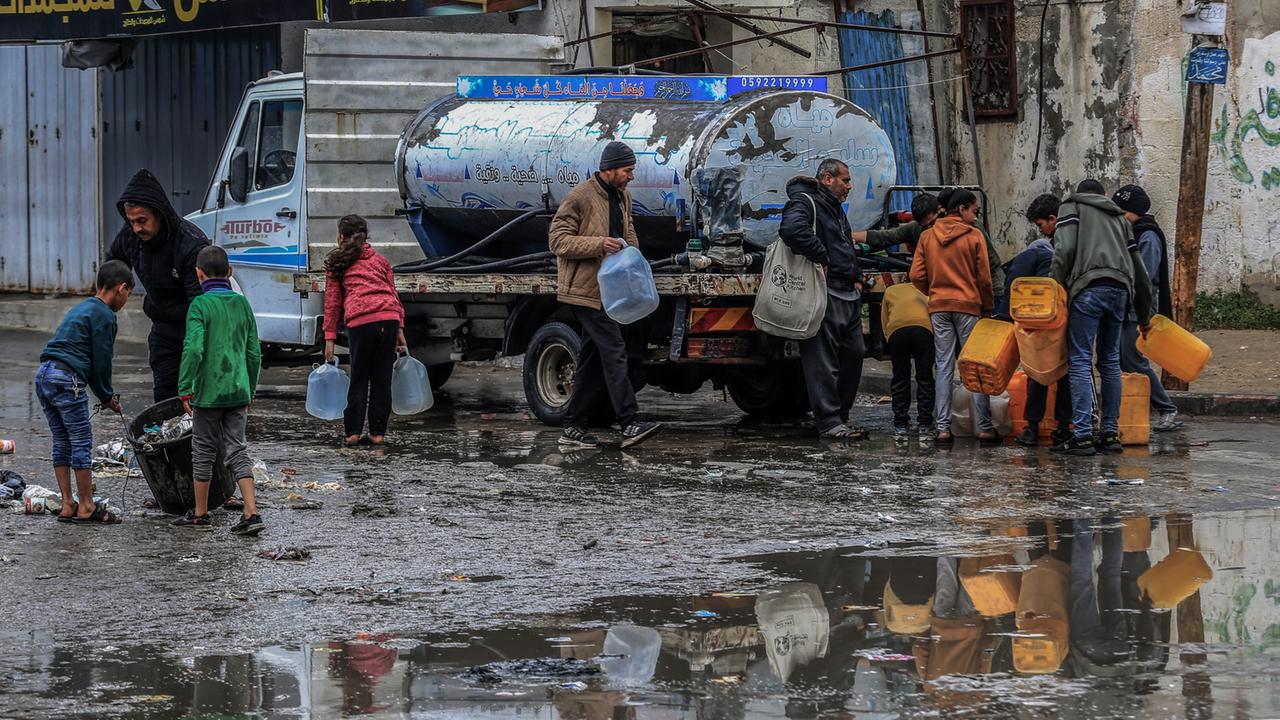Clean drinking water is a resource essential for survival – to which more than two billion people worldwide still do not have access. From the UN's perspective, water shortages threaten to increasingly fuel conflict.
The United Nations has set itself the goal of ensuring that everyone worldwide has access to clean drinking water and basic sanitation by 2030. But this goal is still a long way off: according to figures from UNESCO's current World Water Report, around 2.2 billion people still live without a secure supply of clean drinking water. Approximately 3.5 billion women, men and children cannot use clean sanitary facilities.
“From today's perspective, we will miss the sustainability goals for water and sanitation,” warned Ulla Burchardt, board member of the German UNESCO Commission, with a view to these figures. According to the report, more than half of the world's population currently suffers from water shortages, at least seasonally. A quarter of all people are exposed to “extremely high levels of water stress” because they use more than 80 percent of the annual renewable freshwater supply in their region.
And the consumption of fresh water is increasing worldwide – according to UNESCO estimates, by almost one percent per year. Agriculture accounts for the highest consumption, around 70 percent of the fresh water taken from the natural cycle. However, it is primarily industry, currently around 20 percent, and private households, with ten percent, that are consuming more and more fresh water.
Higher risk of Infectious diseases
The consequences of water scarcity manifest themselves in many ways, warn the United Nations. On the one hand, the lack of clean drinking water in crisis regions is associated with an increasing risk of illness, according to the children's aid organization UNICEF. The organization's managing director in Germany, Christian Schneider, emphasized:
Lack of or polluted water can be just as dangerous to children as bombs and grenades.
War and conflict areas such as the Gaza Strip, Ukraine and Sudan are currently particularly affected. According to UNICEF, around 19 million people there alone, including 7.4 million children, currently have no safe access to water. The result: infectious diseases threaten to spread more and more. Suspected cases of cholera in Sudan have more than doubled since January.
UN believes wars over water are possible
On the other hand, water scarcity threatens to fuel the risk of conflicts worldwide. So far, water has not developed into a “significant trigger” for disputes. But the more scarce the resource becomes, the greater the risk of disputes. “Due to climate change, among other things, there is increasing water shortage, more conflicts and there is a risk that there could be wars over water in the future,” said Sonja Köppel, head of the Secretariat of the UN Water Convention, in an interview with the dpa news agency .
And “it is almost always the poorest and weakest groups whose well-being and existence are most at risk,” the World Water Report continues. One example is the consequences of the drainage of swamp areas in the Sahel region of Africa, which have led to disputes in the region over access to water and fertile land.
water as Peacemaker
In view of these developments, the United Nations is calling for more international cooperation in the struggle for a good water supply – especially in the case of cross-border water use. From the UN's perspective, such cooperation could even counteract tensions. “We have seen in recent years and even centuries that joint water management has played a role as a peacemaker,” Köppel continued.
The states bordering the Sava River – Slovenia, Croatia, Bosnia and Herzegovina and Serbia – concluded an international agreement shortly after the end of the war in 2002, which, among other things, dealt with the exchange of data on water quality and quantity. This led to further cooperation and pacification of the region.




